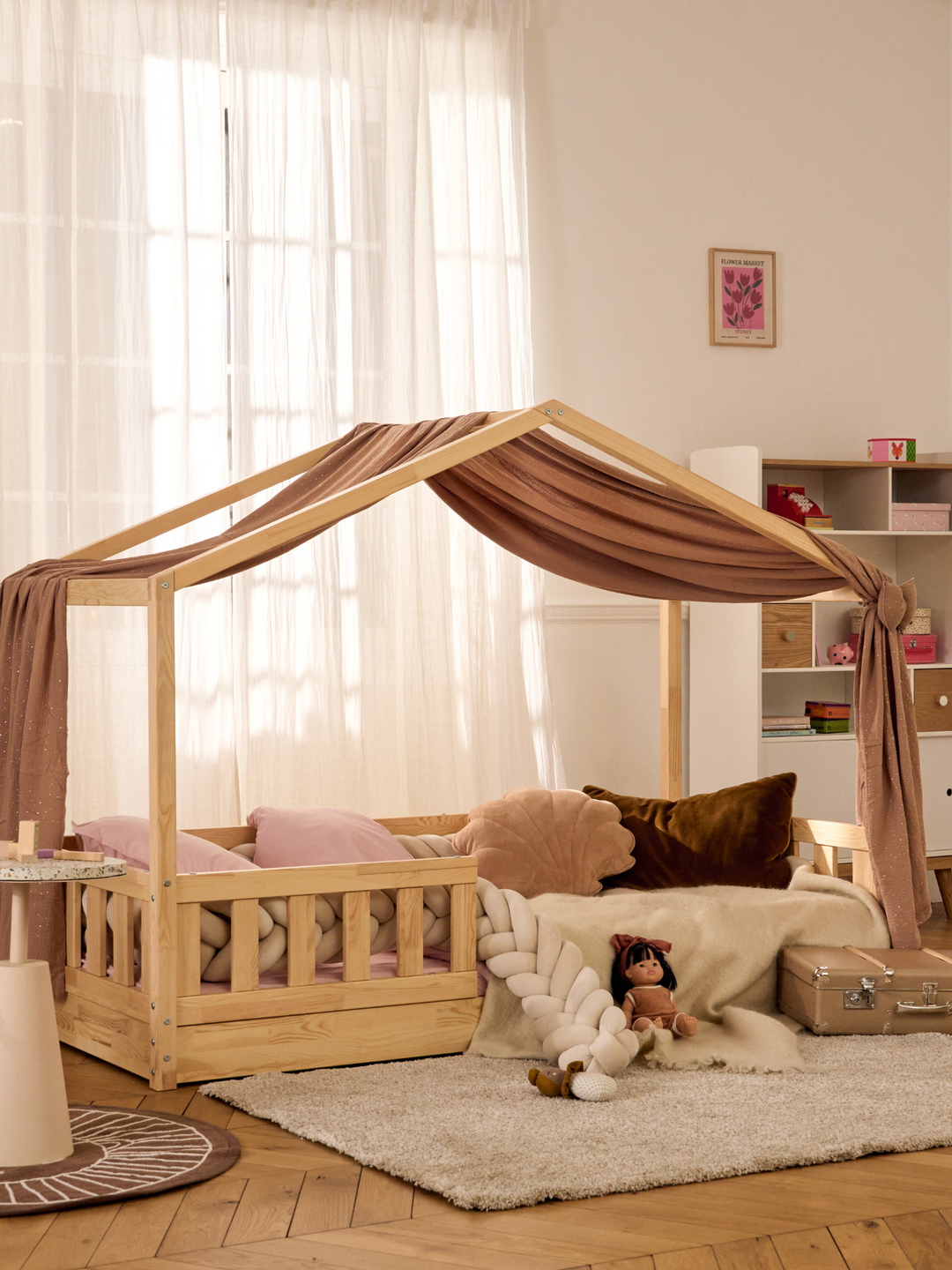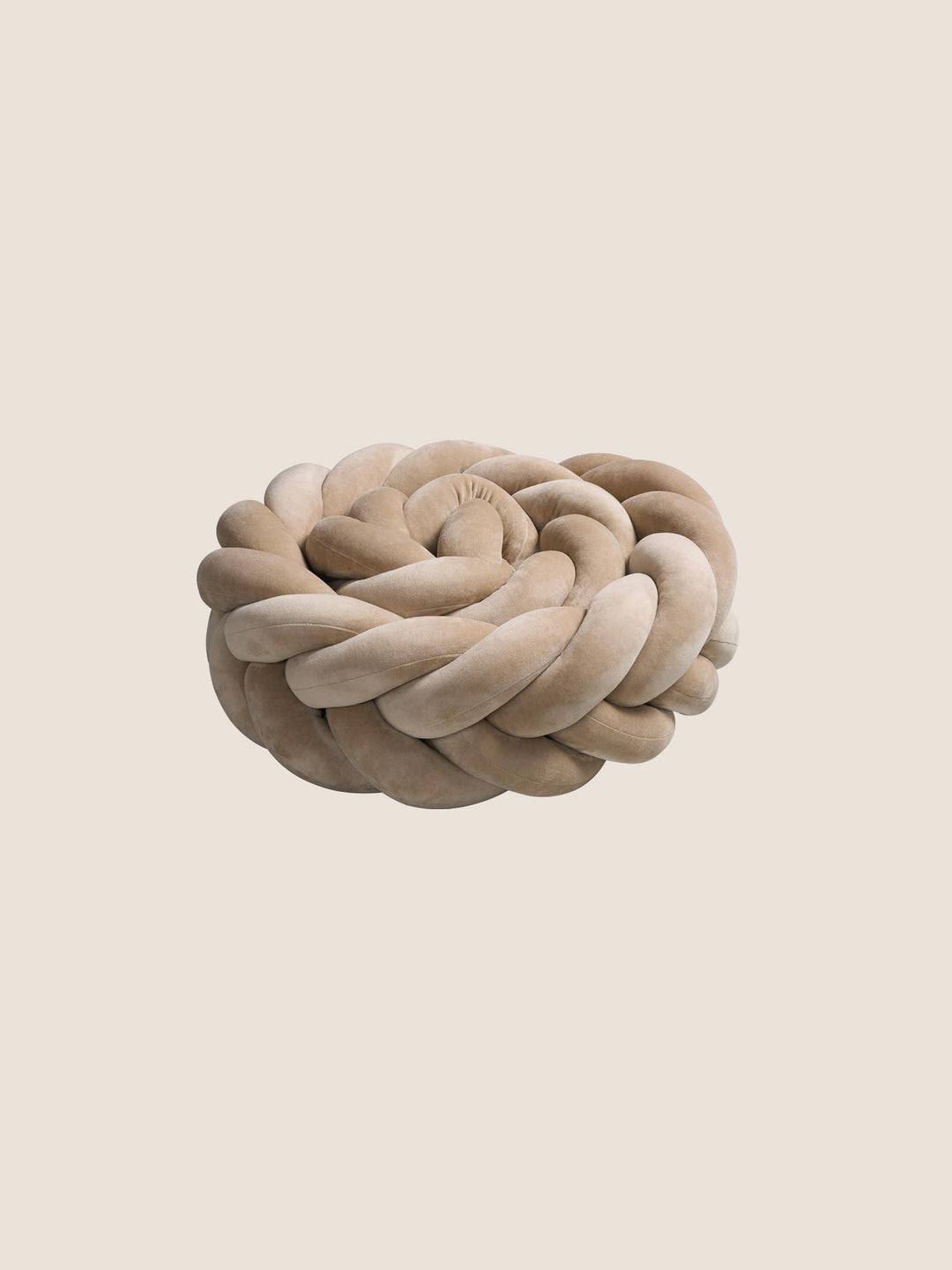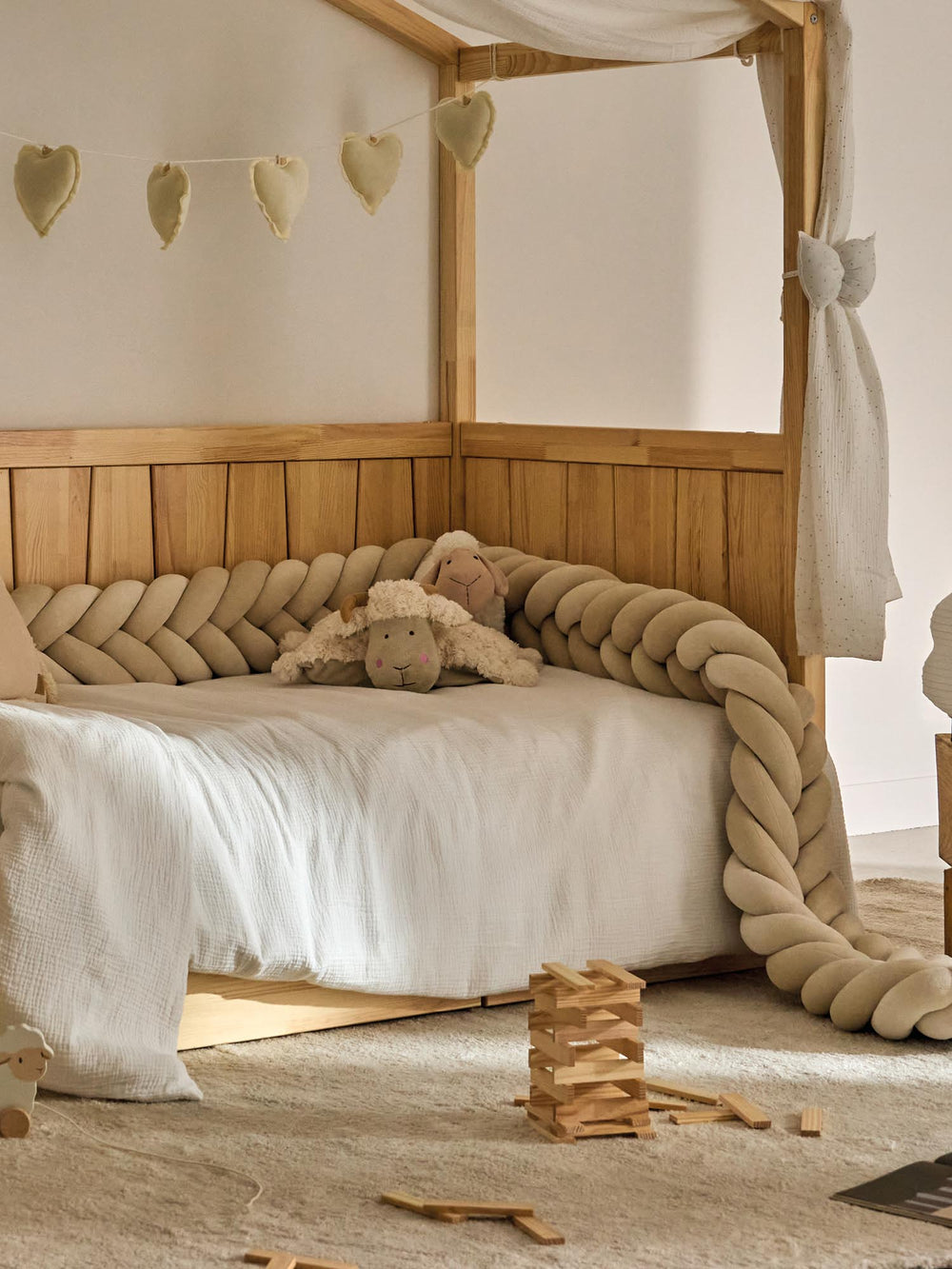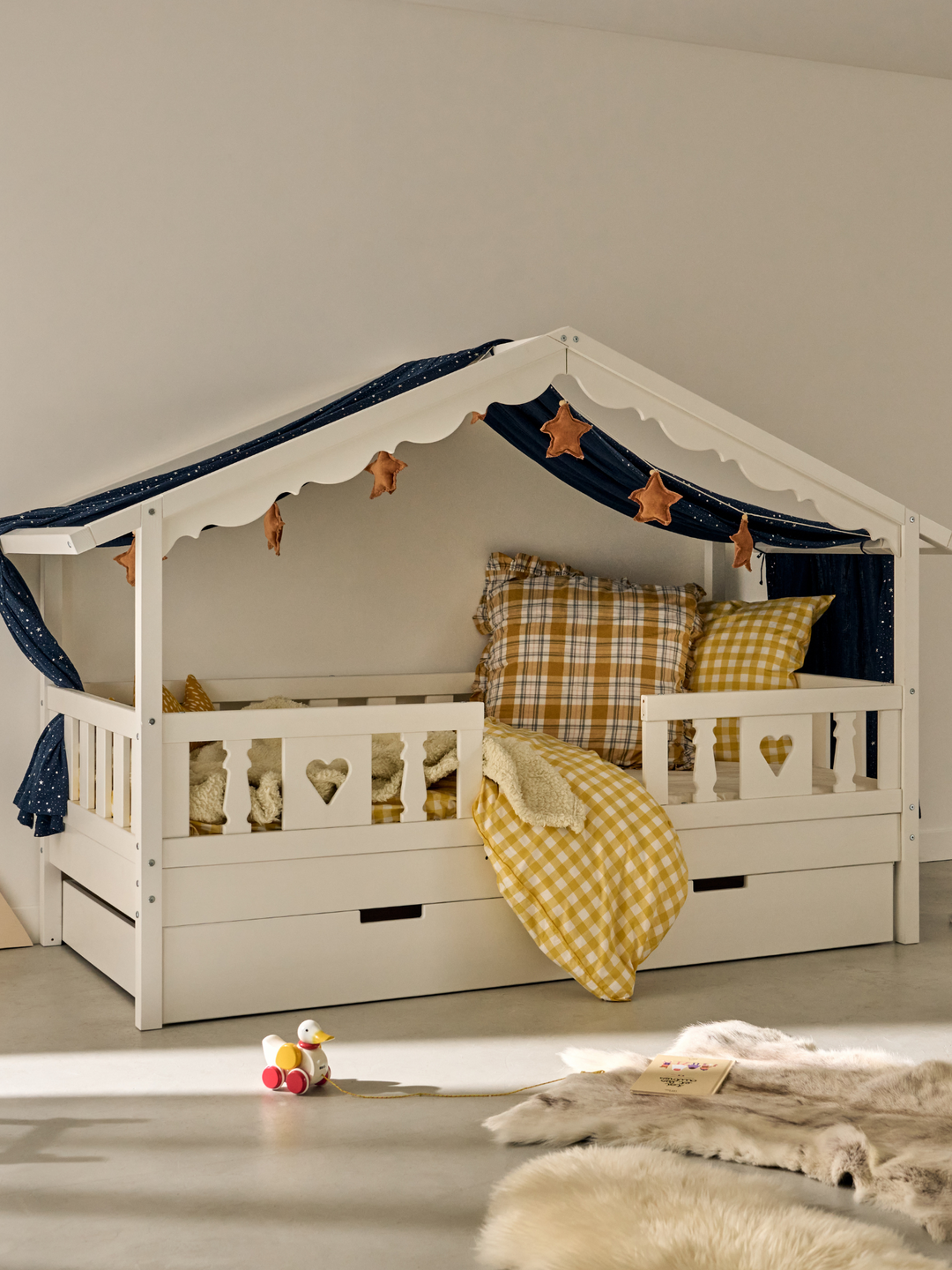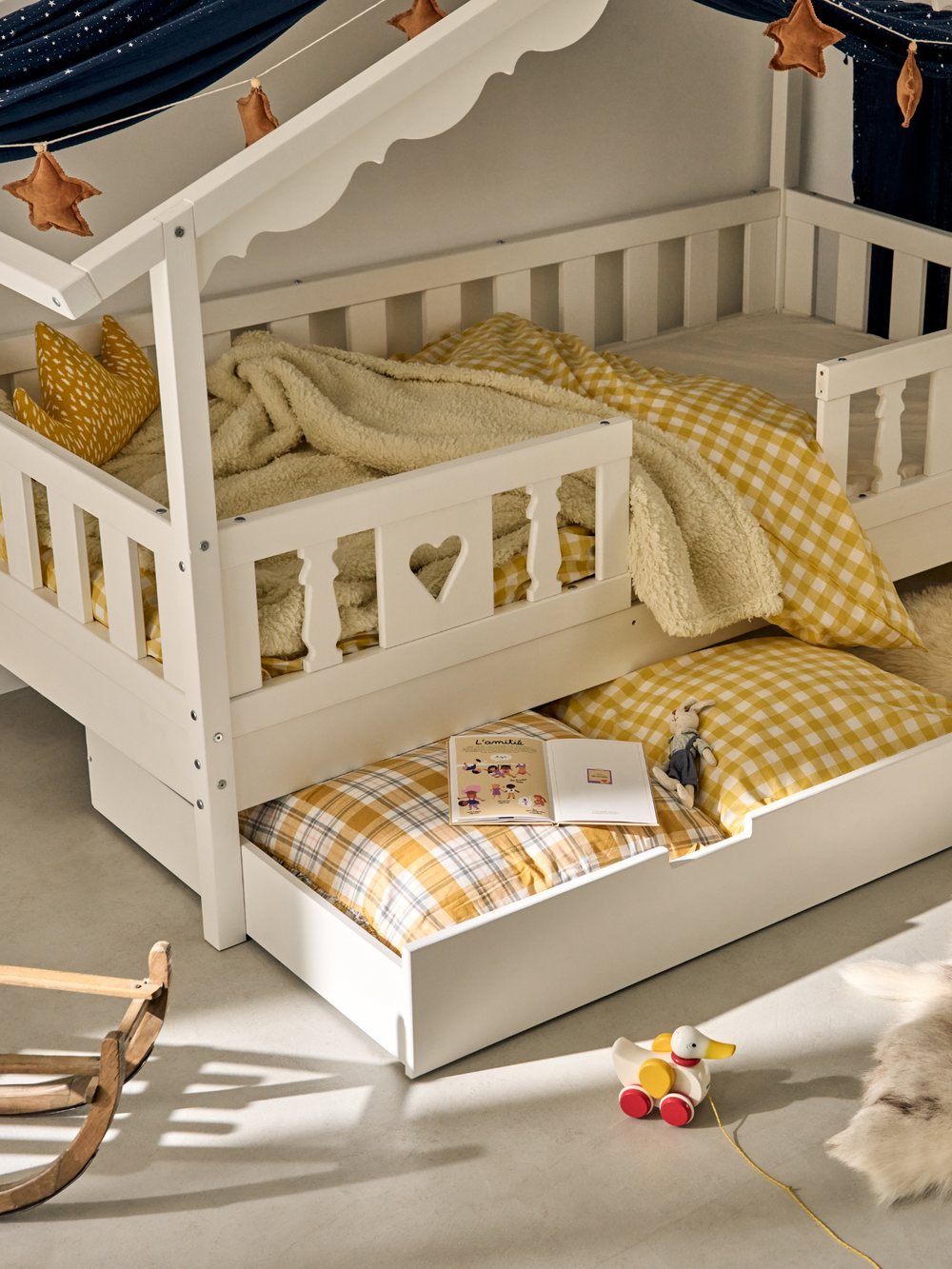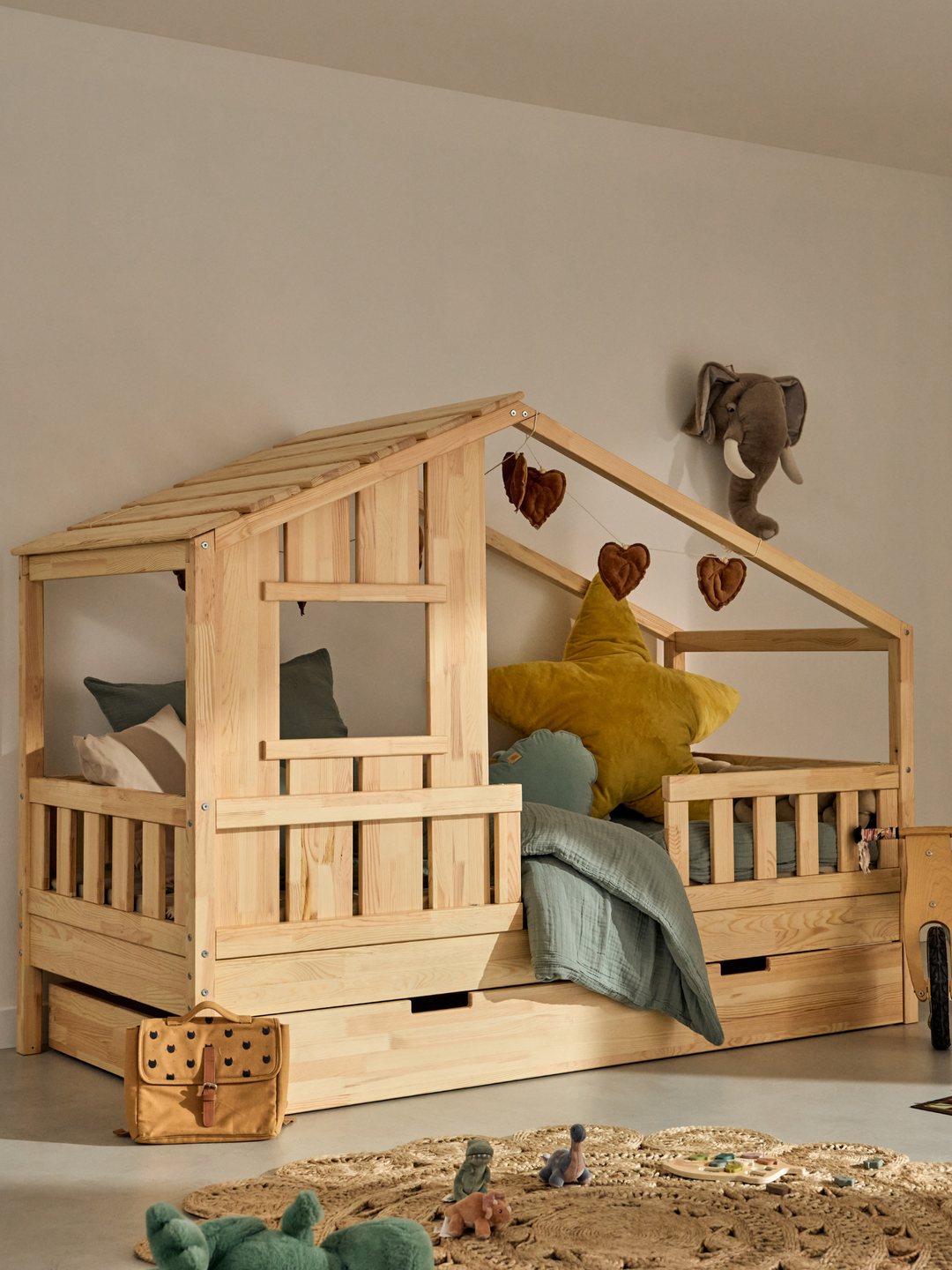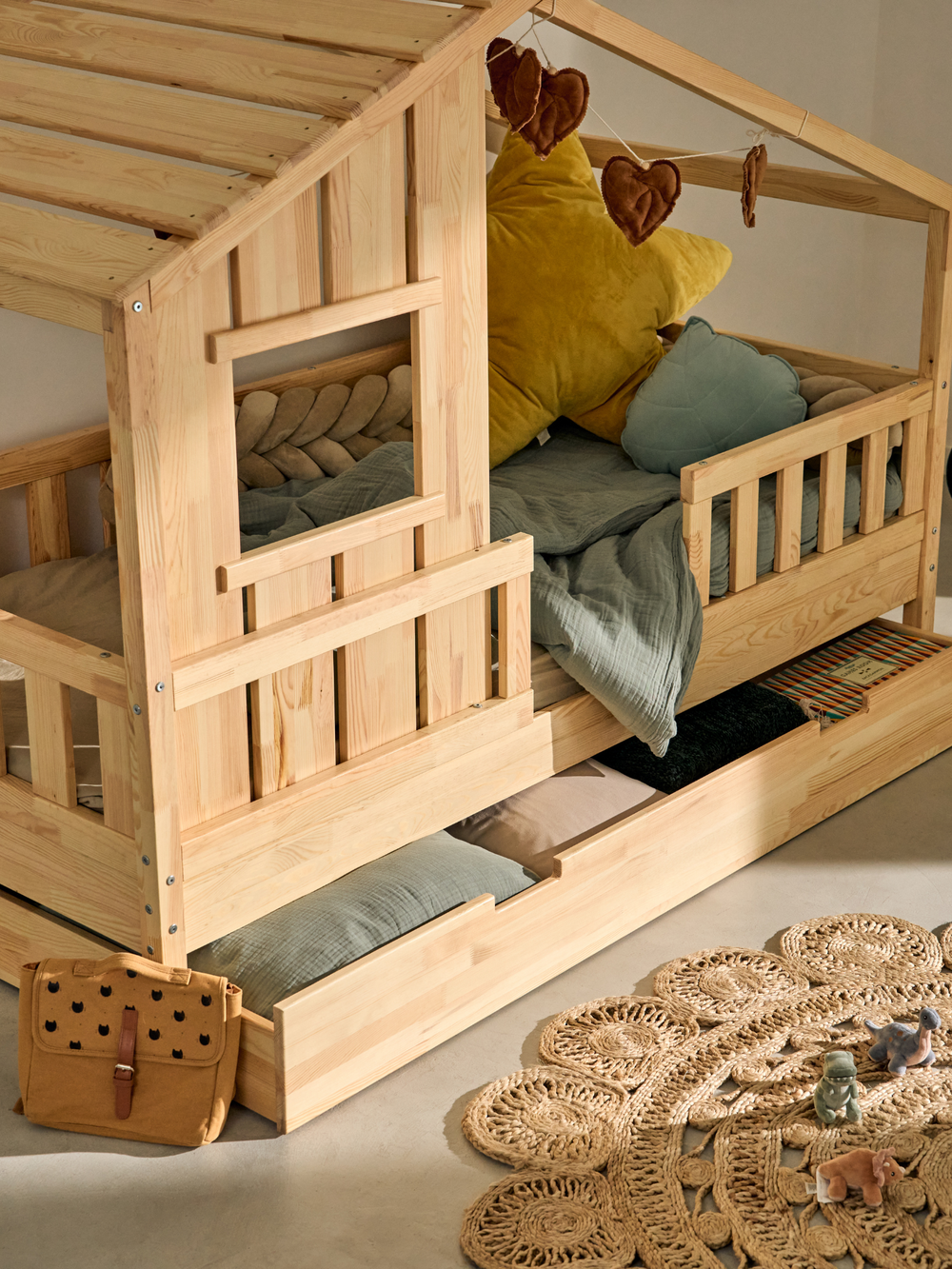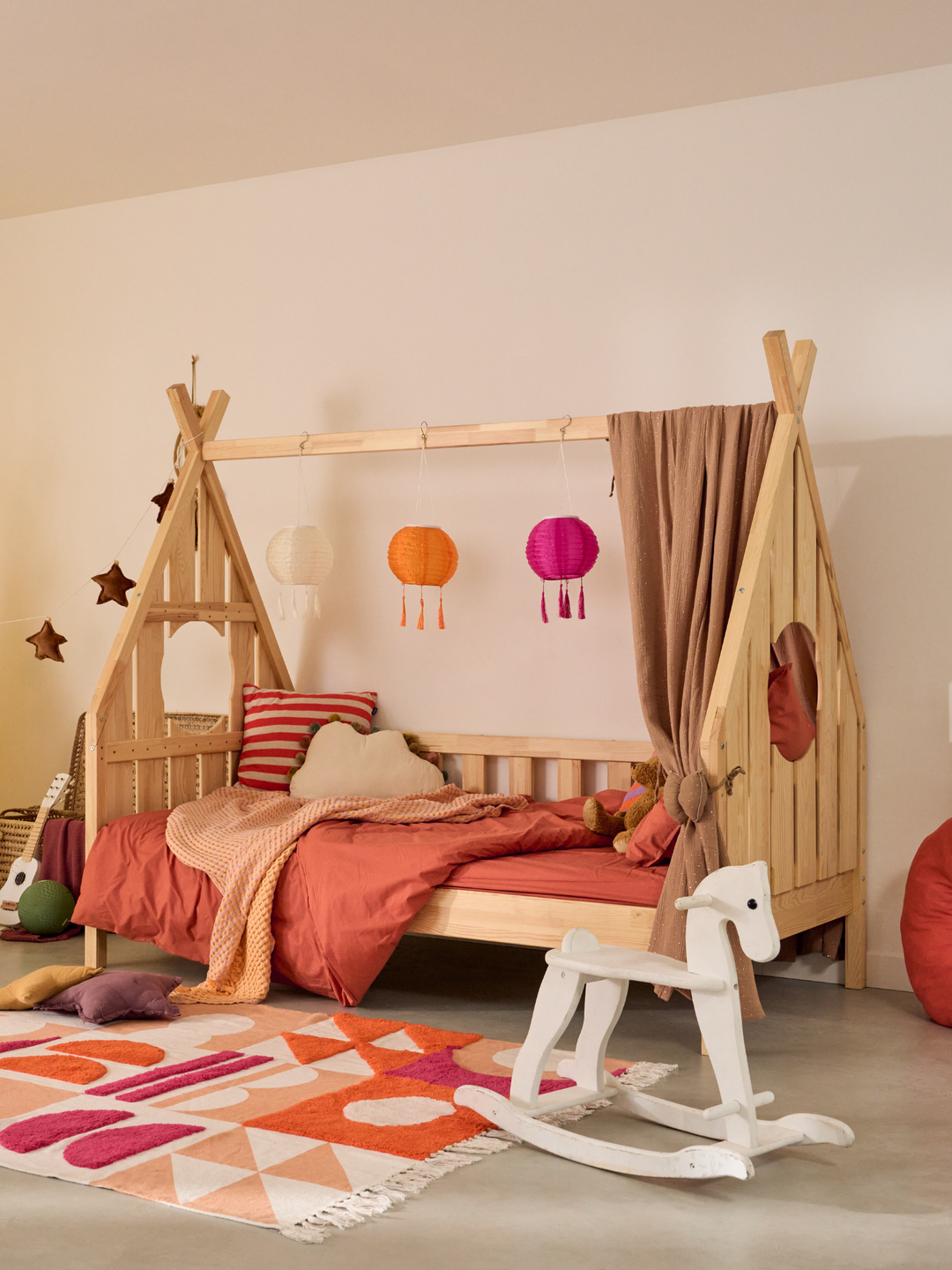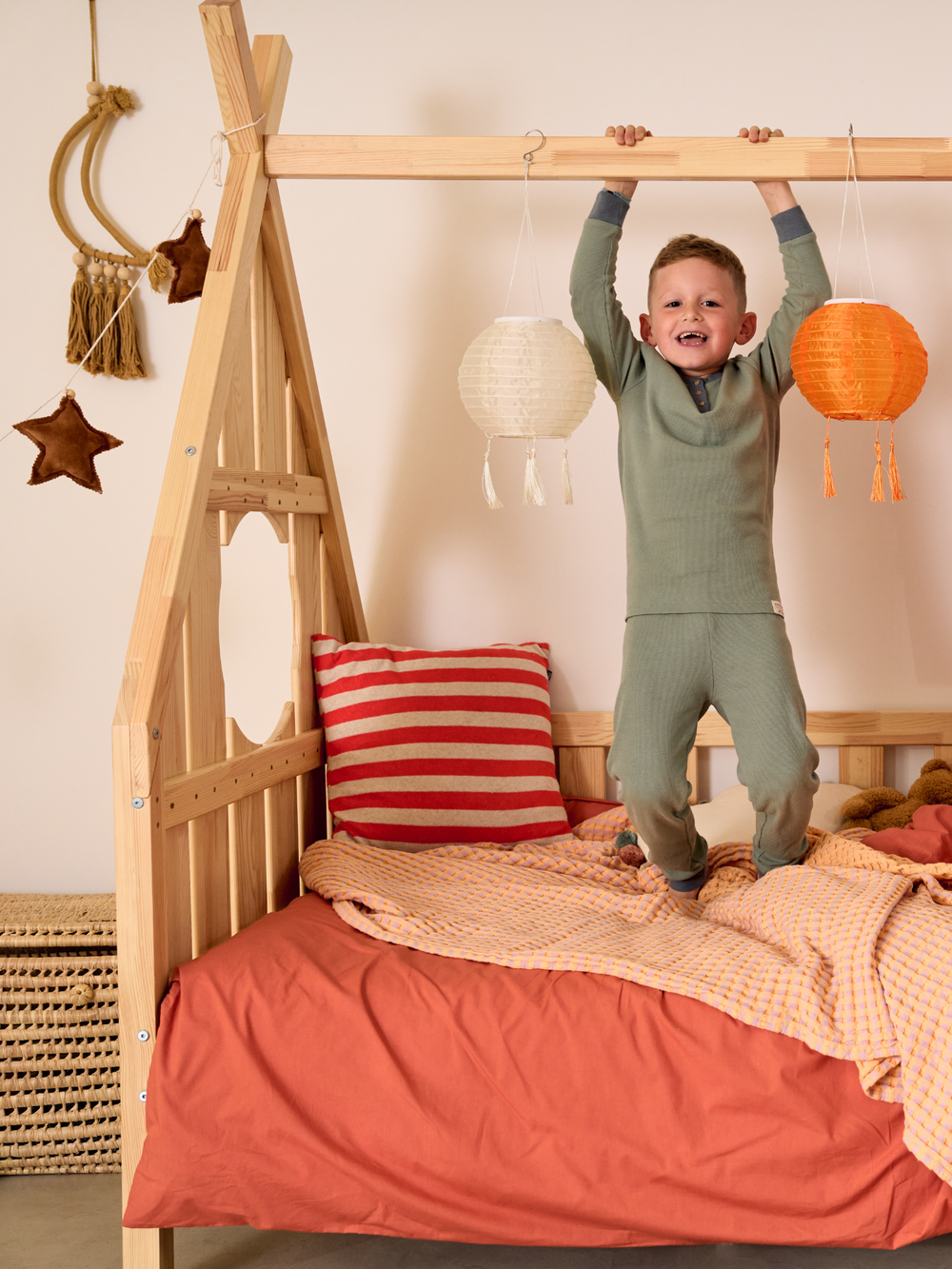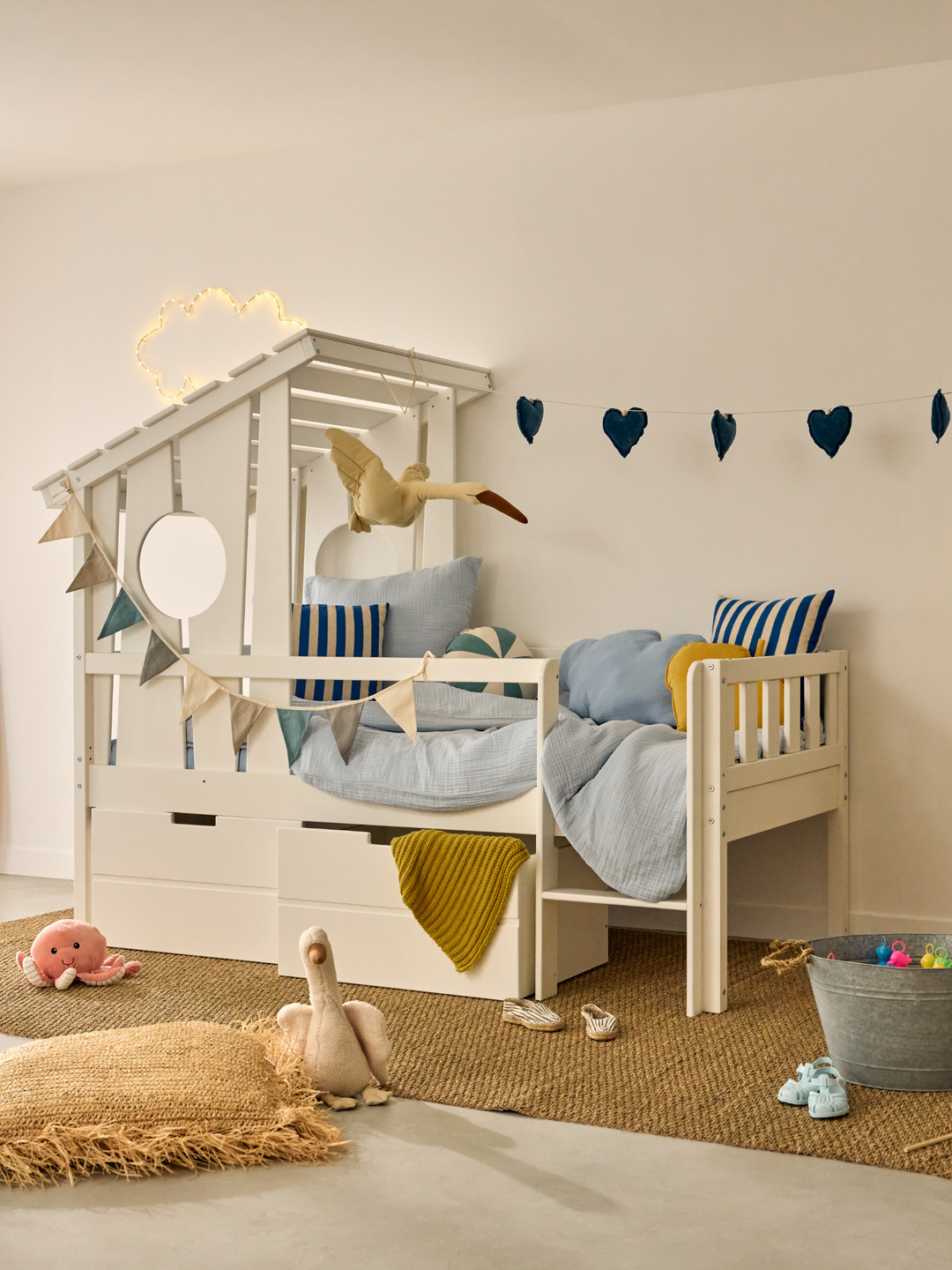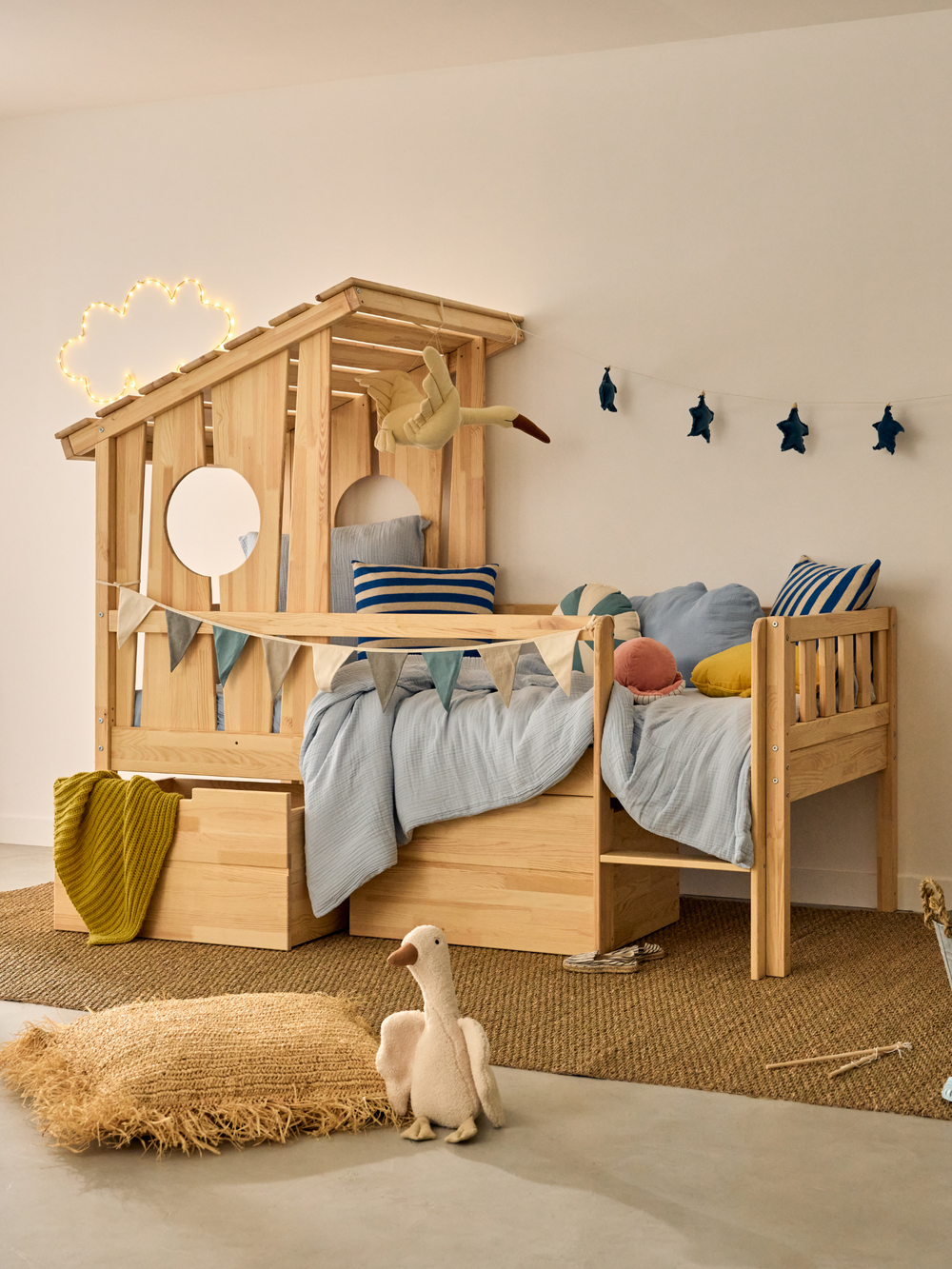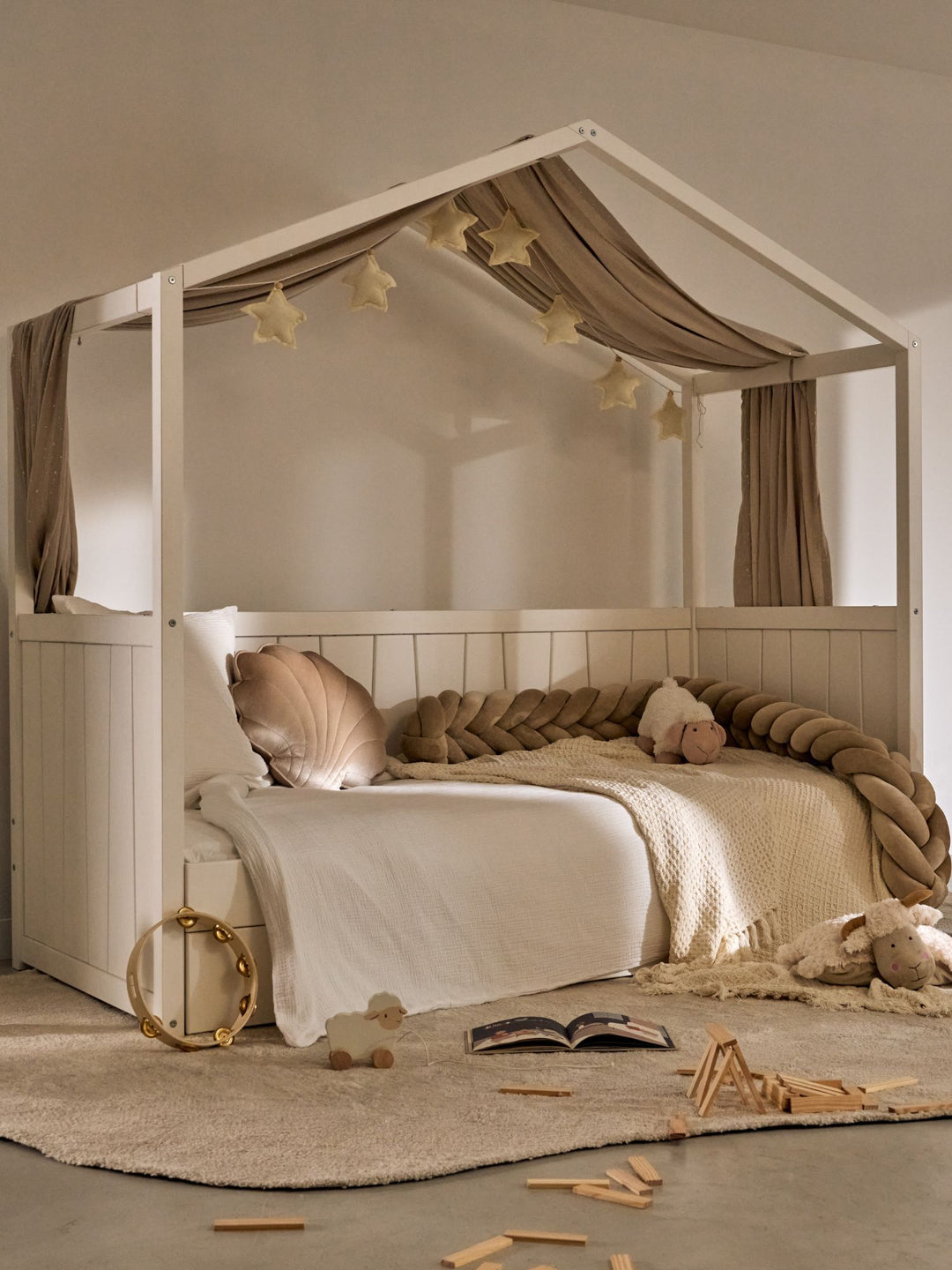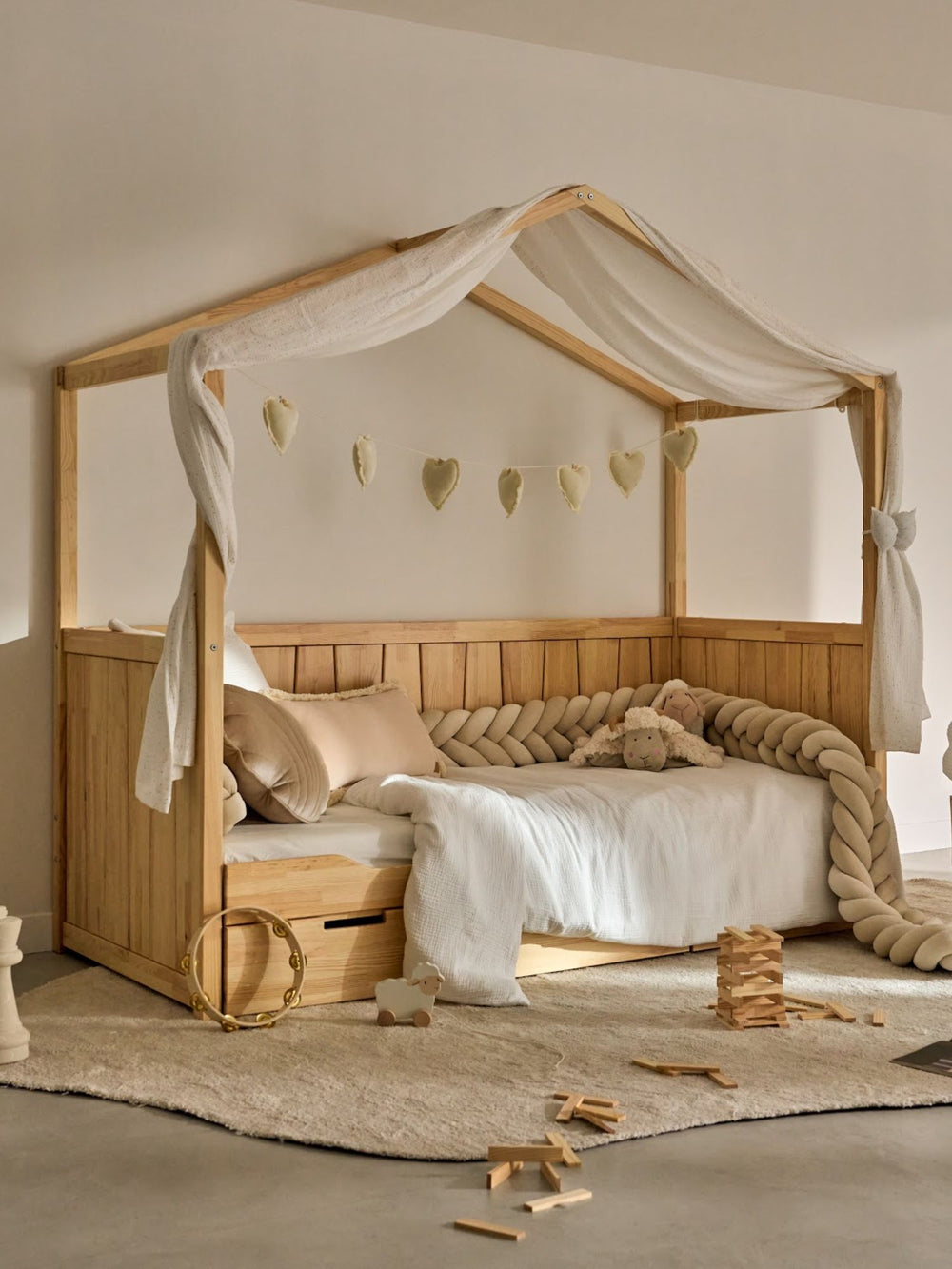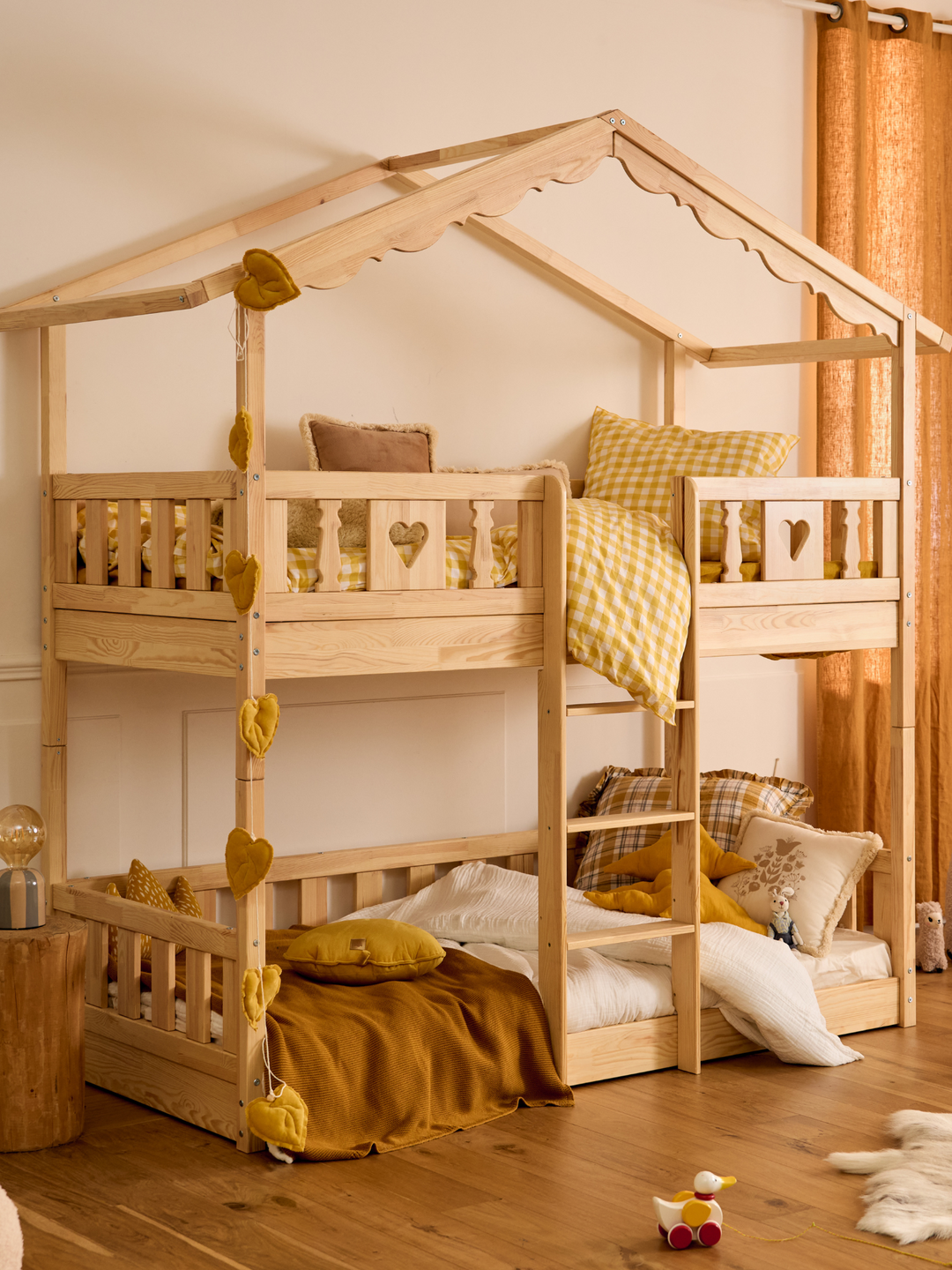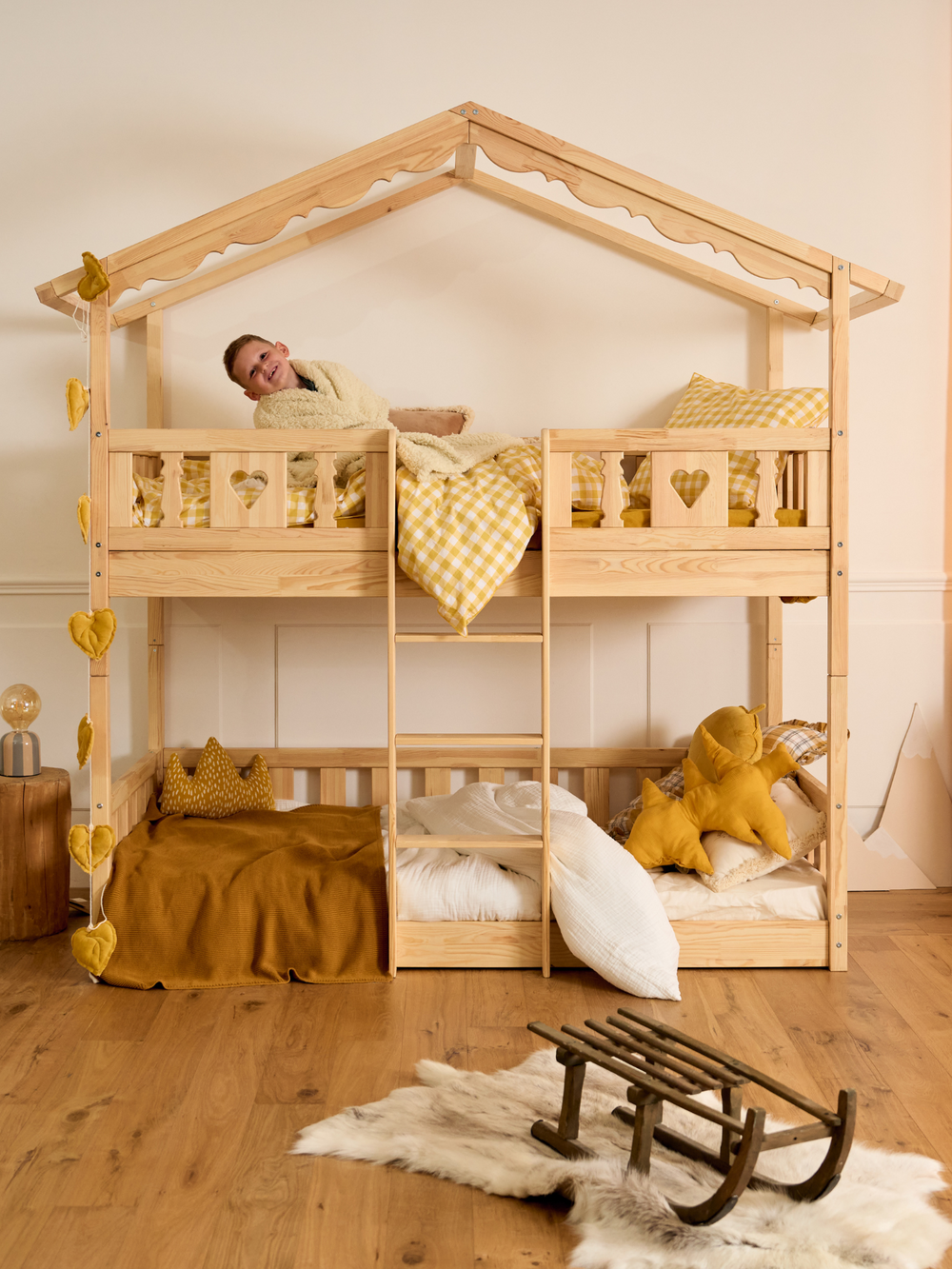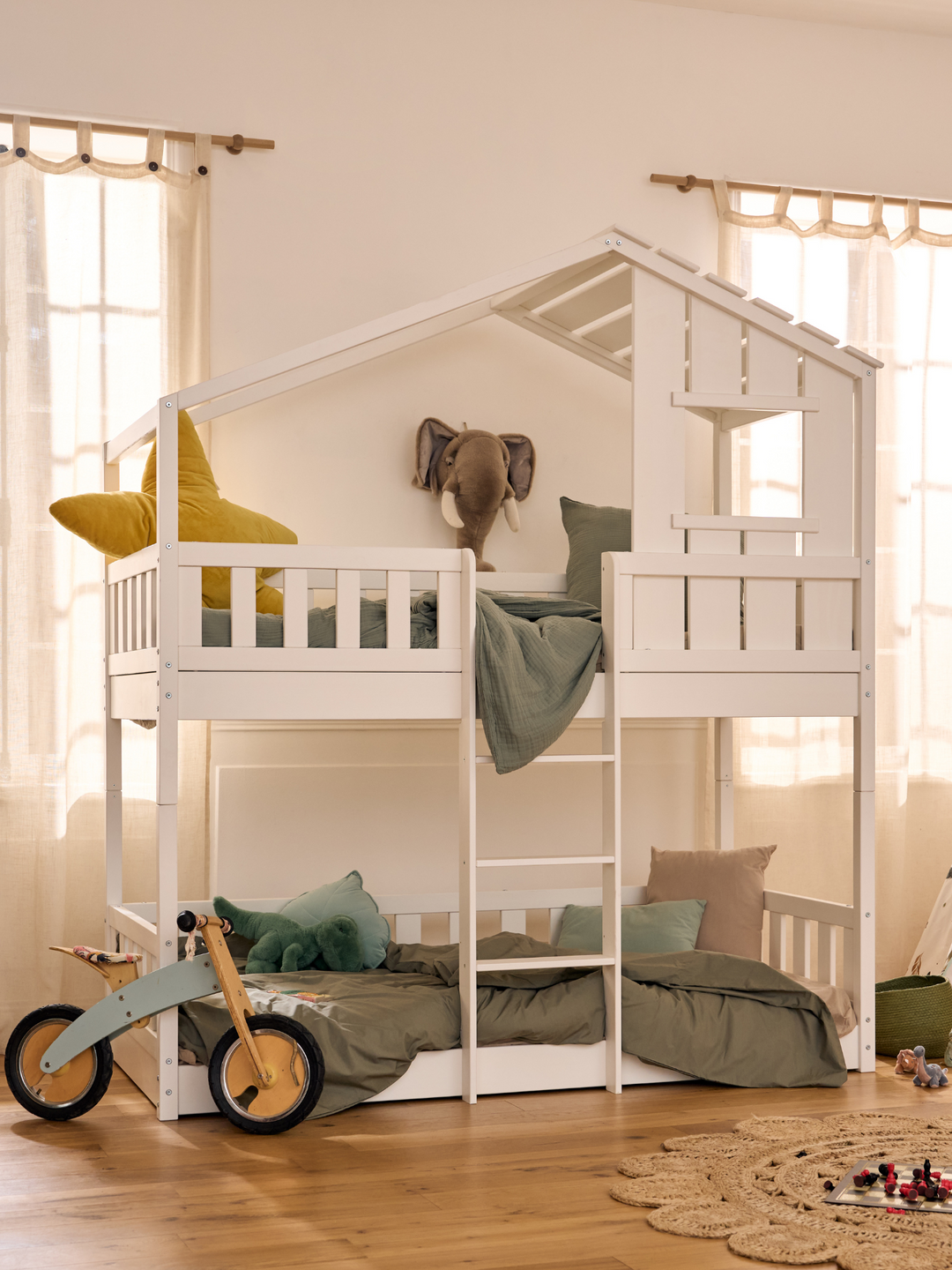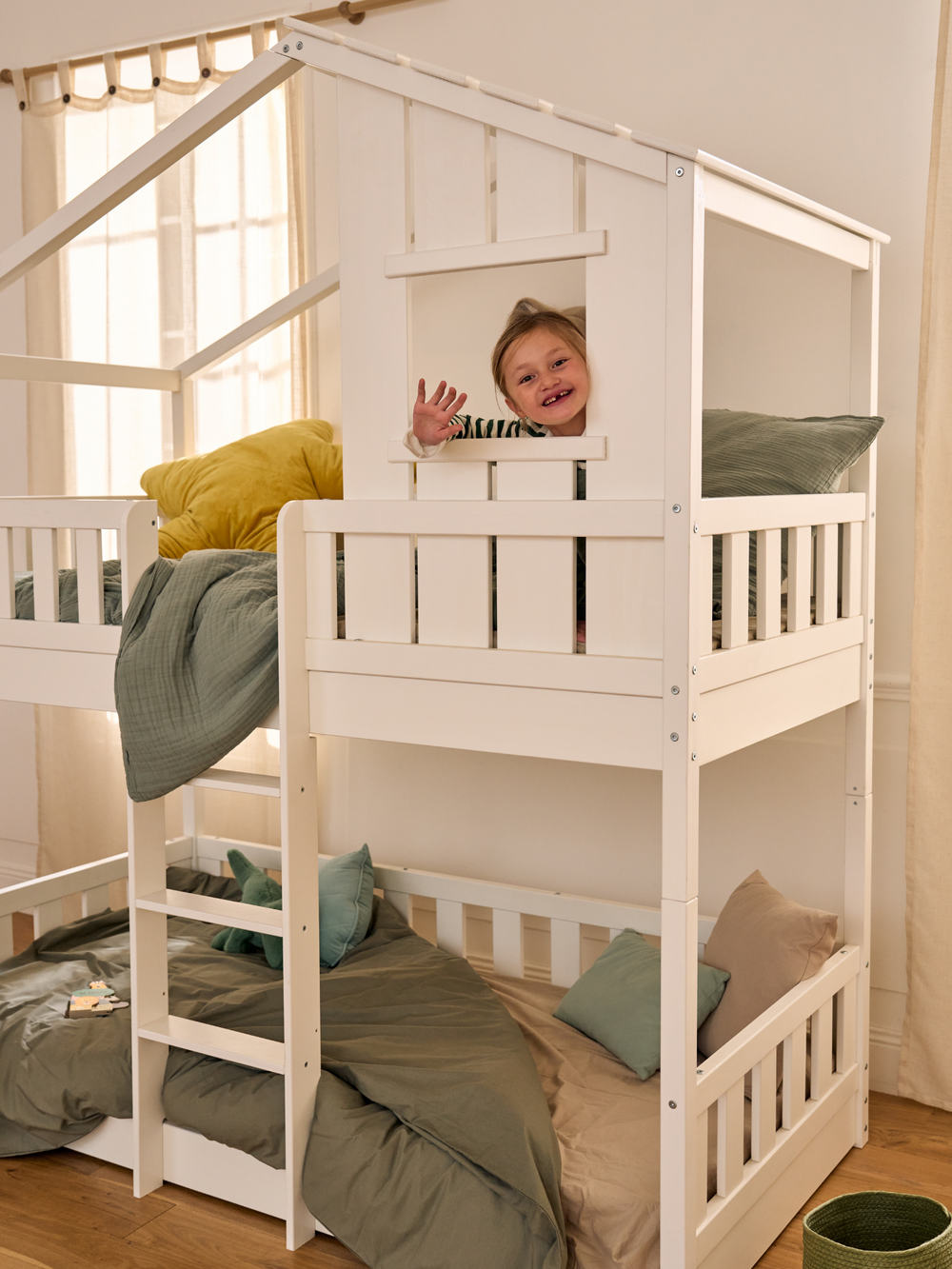Cots
Choosing a crib for your baby is an important decision that needs to be well thought out. Comfort, safety and aesthetics are all criteria to be considered in order to offer your little angel the ideal resting place.
The different types of cots
When it comes to choosing a crib for your baby, it's essential to know the different options available to create a safe and comfortable environment. Each type of crib has unique features that can meet specific needs. Let's explore these varied choices together.
Traditional cots
The classic slatted bed remains a safe bet for new parents. Designed for safety and comfort, this type of bed allows your child to have his or her own space, while being protected by solid barriers. It's important to check that the bed complies with NF EN 716-1 standards, guaranteeing the safety and quality of the product.
Evolving baby beds
If you're looking for a durable solution to accompany your child's growth, an evolving bed could be the ideal option. This type of bed transforms over the years, from a crib to a full-fledged junior bed. For example, the convertible model can drop the bars to become a bench seat, allowing your little adventurer to climb out of bed like a grown-up!
Portable folding cots
For families on the move or those with limited space, portable and foldable cots offer unrivalled flexibility. Easy to transport and store, these beds let your baby sleep peacefully wherever you are. Always make sure that the model you choose complies with European safety standards (NF EN 716-1) to ensure risk-free sleep.
The cradle: a reassuring cocoon
The cradle is ideal for the first few months of an infant's life. Smaller than a standard cot, it creates an enveloping atmosphere reminiscent of a mother's womb. However, it has a limited lifespan - up to around twelve months - which may require additional investment thereafter.
The co-sleeping cradle: guaranteed closeness
For those who wish to practice co-sleeping in complete safety, the co-sleeping cradle is perfect. Featuring a removable barrier that allows the cradle to be aligned with your own bed, it facilitates night-time breastfeeding while guaranteeing a safe, individual space for your baby.
Here are a few tips to follow:
- Safety: make sure all models comply with NF EN 1130-1 or NF EN 716-1 standards;
- Diversity: choose between different types according to your specific needs;
- Durability: opt for evolutionary beds if you want to limit your expenses over the long term.
So, each type of bed has its own advantages, and will respond differently to the expectations of parents concerned with their child's well-being and harmonious development.
Crib safety
Your baby's safety in bed is an absolute priority. To guarantee a safe and serene environment, it's essential to know and respect the standards in force, and to adopt a few simple but crucial precautions.
Safety standards for cots
Baby cots must meet strict standards to ensure optimum protection for your child. In France, NF EN 716-1 and NF EN 1130-1 standards govern the manufacture of cots and cradles. These standards guarantee that the crib meets precise criteria in terms of stability, absence of sharp elements, and secure spacing between slats.
A good example is the cradle, which must offer a truly protective cocoon while meeting the requirements of standard NF EN 1130-1. In particular, this means that the distance between the bars must not exceed 6.5 cm to prevent the baby from getting trapped or putting his head between them. What's more, the minimum height of the sides of the crib must be sufficient to prevent any unintentional exit attempt.
Safety tips for cribs
In addition to complying with standards, a few additional precautions can greatly contribute to your child's safety:
- Use a firm mattress: a mattress that's too soft can present a suffocation hazard. Make sure it fits snugly against the bed frame, leaving no gaps where the baby can get trapped.
- Adjust the height of the slatted base correctly: newborns can sleep on a high position of the slatted base to facilitate access for parents, but as soon as they start to sit up or sit down, it is imperative to lower the slatted base to prevent falls.
- Avoid superfluous objects: pillows, thick blankets and stuffed toys can increase the risk of suffocation. Choose a sleeping bag adapted to the season to keep your baby warm and safe.
- Regularly check the condition of the bed: periodically inspect the bed to make sure there are no loose or damaged parts that could pose a potential hazard.
Attention to these details will not only ensure peace of mind for parents, but also a peaceful, secure sleep for their little treasure. The right choice of furniture also contributes to the baby's overall well-being.
Materials used in the manufacture of cots
When it comes to choosing a crib for your baby, the material used in its manufacture plays a crucial role. Indeed, each material has its own characteristics that influence not only the bed's aesthetics, but also its durability and safety.
Wooden cots
Wood is undoubtedly the most popular material for cribs. It offers unrivalled sturdiness and a warm aesthetic that blends in perfectly with all types of interior design. Solid wood beds, such as those made from beech or oak, guarantee exceptional longevity. What's more, they can be sanded and repainted to match changing decorative tastes over the years.
Wood is also an environmentally-friendly choice when it comes from sustainably managed forests. Consider checking FSC (Forest Stewardship Council) or PEFC (Programme for the Endorsement of Forest Certification) certification to ensure that the wood used meets environmental standards.
Metal cots
Metal cribs also offer several notable advantages. They are often lightweight and easy to move around, yet offer great strength. Metal also allows for more contemporary designs, with clean, modern lines that can bring a touch of elegance to your child's bedroom.
However, it is essential to check that metal finishes are free from toxic substances such as lead or other heavy metals. Opt for certified child-safe paints to ensure your children's well-being.
Material combinations
Some brands offer beds that combine different materials to take advantage of the benefits of each. For example, a bed with a wooden frame and metal elements can offer both sturdiness and lightness, while adding a unique aesthetic touch.
Here are a few points to consider:
- Safety: ensure that all materials used comply with European standards EN 716-1 concerning physical and chemical safety;
- Diversity: combinations of materials allow for a personalized design that meets the specific needs of each family;
- Durability: a judicious mix can extend the life of the bed while maintaining its visual appeal over time.
Always consult the opinions of other parents before buying a cot. Their experience can give you valuable information about the real quality of the product, beyond the commercial promises.
Choosing a crib mattress
The choice of mattress is crucial to guaranteeing your little treasure a safe and peaceful night's sleep. A good mattress must offer the necessary support while remaining comfortable. But how do you make sense of the countless options available? What criteria should you focus on to make the best choice?
Criteria for choosing a crib mattress
To choose the right mattress for your baby, there are several factors to consider:
- Firmness: opt for a firm mattress to prevent the risk of suffocation. Babies need solid support to promote healthy bone growth.
- Materials: choose hypoallergenic, breathable materials. Natural latex, for example, is an excellent option as it combines comfort with anti-allergenic properties.
- Size: make sure the mattress fits perfectly into the crib, without leaving any gaps between the edges of the mattress and the sides of the crib. This will prevent your baby from getting stuck.
- Thickness: a thickness of 10 to 12 cm is ideal to guarantee both comfort and safety.
The different types of crib mattresses
As there are a multitude of models on the market, here are a few concrete examples to help you make your choice:
- Foam mattresses: lightweight and economical, they offer good value for money. However, make sure they are sufficiently firm.
- Natural latex mattresses: more expensive but extremely comfortable and durable. They are also naturally resistant to dust mites.
- Pocket-spring mattresses: offering excellent support thanks to their independent springs, they are particularly suitable for babies who move around a lot during sleep.
You should also check whether the mattress has a removable, washable cover. This will make daily maintenance much easier and guarantee impeccable hygiene for your child.
Additional tips for the right choice
Don't forget that safety comes first! So make sure every component complies with current standards (NF EN 16890). You can also consult the opinions of other parents on specialized forums, or seek advice from childcare professionals.
To further optimize your little one's night-time comfort, consider investing in complementary accessories such as waterproof mattress pads or breathable mattress overlays. These little extras will make all the difference!
Crib design and aesthetics
When it comes to choosing a bed for your baby, design andaesthetics play a crucial role. After all, this piece of furniture will not only be a resting place for your child, but also a centerpiece in the decoration of his or her room. You're probably looking for something that's both functional and aesthetically pleasing, right? Imagine a room where every element contributes to creating a soft, warm atmosphere, conducive to dreams and fulfillment.
Crib decoration styles
Decorative styles for cribs are varied, allowing you to adapt the choice of crib to your personal tastes and the overall theme of the room. Here are a few popular styles:
- Scandinavian: this style favors clean lines, neutral colors and natural materials like light wood. It creates a soothing, modern ambience.
- Bohemian: with its ethnic motifs, warm colors and cozy textiles, the bohemian style brings a touch of originality and exoticism.
- Classic: beds finished in dark wood or off-white with carved details are perfect for an elegant, traditional bedroom.
- Nature trend: opt for eco-friendly materials such as raw or recycled wood. This style is ideal for those who want to instill respect for the environment from an early age.
Personalizing and accessorizing cribs
To make the bed even more unique, you can add various accessories that not only embellish the space but also increase its comfort. For example:
- Bed canopy: a light veil suspended over the bed creates a reassuring cocoon effect while adding a touch of enchantment.
- Personalized bed linen: choose sheets with special patterns or embroidery that reflect your child's personality or emerging interests.
- Decorative cushions: colorful or animal-shaped cushions can instantly brighten up the space while providing soft support during cuddly moments.
- Soft lights: a string of lights around the bed frame can create a subdued atmosphere ideal for calming your child before sleep.
Don't forget that every detail counts when it comes to creating the perfect room for your little treasure. By carefully choosing the design and accessories for the crib, you'll create a space where he'll feel loved and protected from his very first days.
Cots: price and budget
Choosing the perfect crib for your baby is a crucial decision, but it doesn't have to mean sacrificing your budget. So how do you find a bed that combines quality, safety and aesthetics without breaking the bank? Let's take a look at the factors that influence the price of cots, and some tips on how to find the perfect one.
Factors influencing crib prices
The cost of a cot can vary considerably depending on a number of criteria. Here are a few things to consider:
- Materials used: solid wood beds, for example, tend to be more expensive than those made of fiberboard or metal. The type of wood (oak, beech, pine) can also influence price.
- Additional features: an evolving bed that accompanies the child until he or she is 8/9 years old will have a higher initial cost than a traditional crib, but it represents a long-term investment.
- Design and finishes: beds with elaborate or customizable designs can cost more. If you opt for a unique or made-to-measure model, expect to pay extra.
- Brand: certain brands renowned for their quality and reliability may charge higher prices. However, these brands often offer extended warranties and greater durability.
Tips for finding a good crib at a reasonable price
Even on a limited budget, it's possible to find a quality crib. Here are a few practical tips:
- Take advantage of seasonal sales or flash sales on our site to get great discounts on a selection of cots.
- Consider evolving models: although more expensive upfront, evolving beds are economical in the long term, as they grow with your child.
- Buying in sets: some stores offer sets that include the bed, mattress and sometimes even matching bedding at a special price.
- The second-hand option: for those who are not afraid of the second-hand market, some specialized websites offer excellent quality cots at a lower price. Make sure, however, that these products meet current safety standards before you buy.
Don't forget that safety must always come first in your choices. An inexpensive bed that doesn't comply with standards could pose a risk to your child. By taking all these factors and tips into account, you'll be able to make an informed choice without compromising either the safety or the aesthetics of the cosy cocoon you want to offer your baby.
